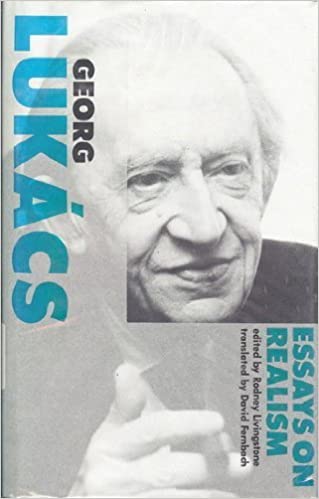ルカーチ・ジェルジュの名言
[1885.4.13 - 1971.6.4]
ハンガリー出身の哲学者、文学批評家。ベルリン大学でジンメルに、ハイデルベルク大学でマックス・ヴェーバーに師事、その後ブダペストに戻り文学批評を始める。マルクス主義とヘーゲル哲学に基づき、人間の自覚的な活動としての歴史的なプロセスを強調した「史的唯物論」を主張し、文化や芸術の中における社会構造の反映を明らかにする「反映論」を提唱。またブロッホやアドルノとともに「表現主義論争」を展開した。第一次世界大戦後はハンガリー共産党に加入し、ハンガリー・ソビエト共和国の文化教育相となるも、共和国の崩壊後にウィーンに亡命。その後、モスクワで第二次世界大戦を迎え、戦後はハンガリーに戻ってブダペスト大学で教鞭を執る。その思想は、現代の社会や文化、芸術における問題を明確に理解するための一つの視角を提供している。著書は、『歴史と階級意識』『小説の理論』『魂と形式』『生きられた思想』『ソルジェニーツィン』『ロマンの魔術師―トーマス・マン論』『レーニン論』等がある。
Unmediated concepts ... veil the relations between objects. ... They are, therefore, objects of knowledge, but the object which is known through them is not the capitalist system of production itself, but the ideology of its ruling class.
無媒介的な概念は、対象間の関わりを覆い隠す。それゆえ、それらは知識の対象であるのだが、それらを通して知られるところの対象というのは、資本主義的生産システムそのものではなく、その支配階級のイデオロギーなのである。
From the ethical point of view, no one can escape responsibility with the excuse that he is only an individual, on whom the fate of the world does not depend. Not only can this not be known objectively for certain, because it is always possible that it will depend precisely on the individual, but this kind of thinking is also made impossible by the very essence of ethics, by conscience and the sense of responsibility.
倫理的な観点からすれば誰も、自分は単なる一個人であって世界の運命は自分に掛かってなどいないとの言い訳によって責任から逃れることはできない。なぜなら、それを客観的に確定的に知ることができないだけでなく、個人が決定的に影響を与える可能性が常にあるからだ。さらに倫理そのものの本質である良心や責任感によって、この種の思考は不可能なものにもされるのである。
There is no reasonable doubt that existentialism will soon become the predominant philosophical current among bourgeois intellectuals.
ブルジョア知識人の間で実存主義がすぐにも優勢な哲学的潮流となることに合理的な疑いはないであろう。ブルジョア知識人の間で実存主義がすぐにも優勢な哲学的潮流となることに合理的な疑いの余地はないであろう。
In Marx the dialectical method aims at understanding society as a whole. Bourgeois thought concerns itself with objects that arise either from the process of studying phenomena in isolation, or from the division of labor and specialisation in the different disciplines.
マルクスにおける弁証法的方法は、社会を全体として理解することを目指す。一方ブルジョワ的思考は、孤立した現象の研究プロセスから生じる対象、あるいは各学問の分業や専門化から生じる対象に関心を持つものである。
Bourgeois thought judges social phenomena conscious or unconsciously, naively or subtly, consistently from the standpoint of the individual. No path leads from the individual to the totality.
ブルジョア的思考は、意識的にも無意識的にも、素朴にも巧妙にも、つねに個人の視点から社会現象を判断するものである。しかし個人から全体へと通ずる道というのは、ないのだ。
Critical philosophy implies above all historical criticism. It dissolves the rigid, unhistorical, natural appearance of social institutions; it reveals their historical origins.
批判哲学というのは何より、歴史批判を意味する。それは社会制度の硬直的、非歴史的、自然な外観を解体する。すなわち、その歴史的起源を明らかにするのである。
The crassest form of 'false consciousness' always manifests itself when the conscious mastery of economic phenomena appears to be at its greatest.
「虚偽の意識」のもっとも粗雑な形態はいつでも、経済現象に熟達していると意識的に思えるときに現れるのである。
From a very early stage the ideological history of the bourgeoisie was nothing but a desperate resistance to every insight into the true nature of the society it had created.
ブルジョアジー的なイデオロギーの歴史は、そのごく初期の段階から、自らが作り出した社会の本質についてのあらゆる洞察に対する必死の抵抗でしかなかったのだ。
1 - 8 / 8件
 本の読み放題はコチラ |
 本の聴き放題はコチラ |


